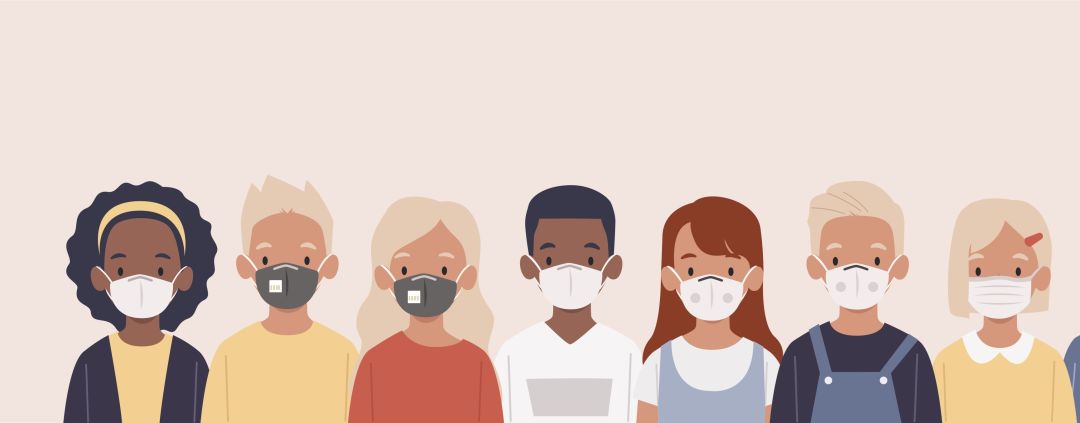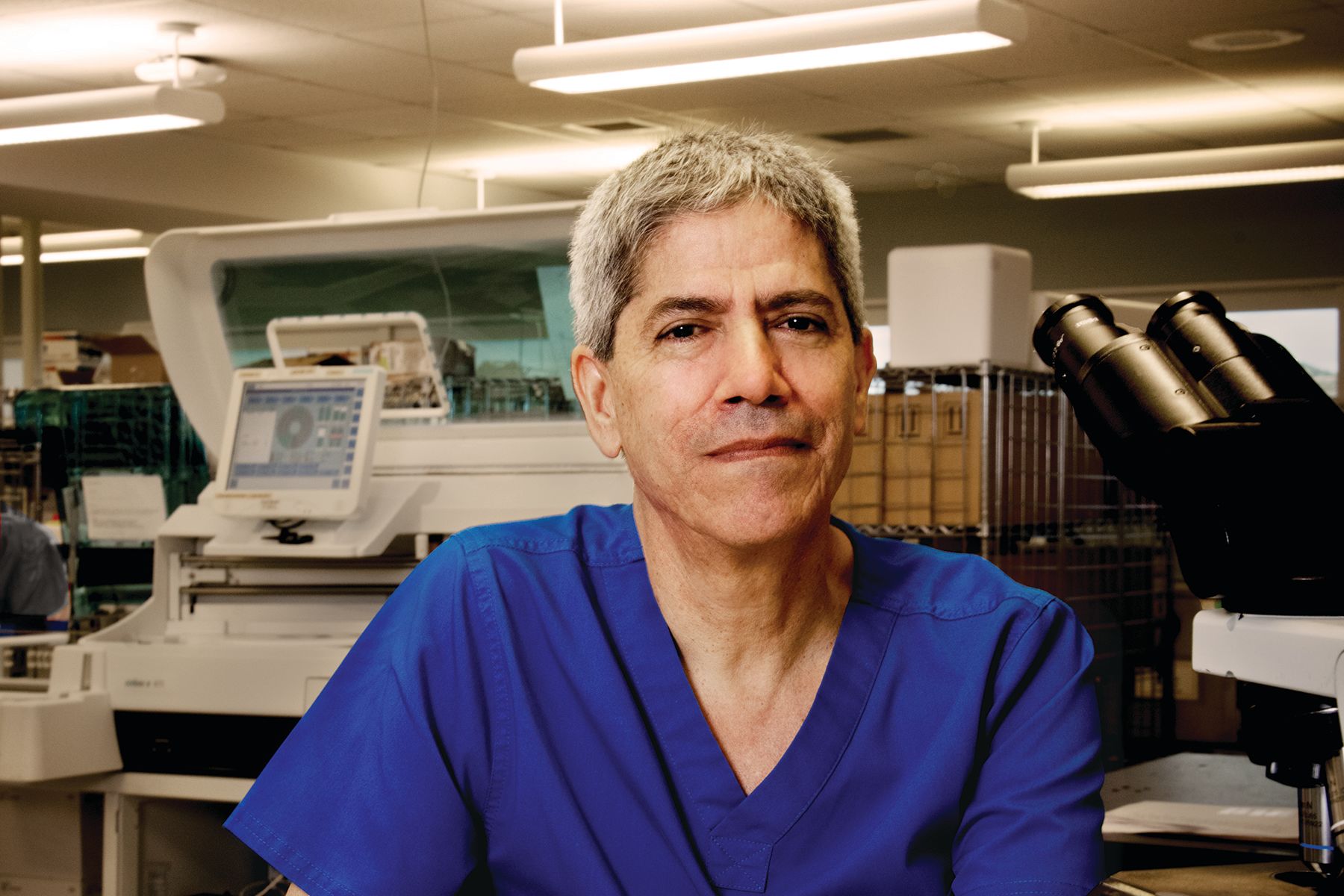A Sarasota Pediatrician's Advice for Keeping Children Safe When Returning to School

Image: Paranyu/Shutterstock
Sarasota and Manatee county schools return for the 2021-2022 school year on Tuesday, Aug. 10. Both county school boards have voted on making masks optional for children, teachers and staff. But with the rise in Delta variant cases among children—and a rise in other respiratory illnesses, like Respiratory Syncytial Virus (RSV) and Multisystem Inflammatory Syndrome (MIS-C), it's important to keep children safe when at school and home.
Dr. Jessie Hoang, pediatric hospitalist and assistant clinical director of the Johns Hopkins All Children's Hospital at Sarasota Memorial Hospital, shared her insight about Covid-19 risk in children, vaccination, mask-wearing and what to do when returning to school in this video for Sarasota Memorial Hospital on Wednesday, August 4. Here's a recap.
Are we seeing a rise in pediatric hospitalizations?
"There has been a rise in pediatric Covid-19 diagnoses in the Suncoast area. In June, 12 children tested positive for Covid-19 at All Children's [St. Petersburg location]. In July, 181 children tested positive. That does not mean all needed to be hospitalized. In fact, many children can be taken care of safely at home. It just shows the stark increase, and we attribute it to the Delta variant."
How sick are children getting with Covid-19? What ages are most at risk?
"The group most at risk is those under age 11. They're still too young to be vaccinated. In terms of hospitalization, it is still true that Covid-19 often does not cause severe disease in kids. However, we are seeing kids in need of hospitalization for oxygen support or IV fluids. We have seen some serious cases of Covid encephalitis [where Covid gets to the brain], as well as Covid pneumonia. There is a disease called Multisystem Inflammatory Syndrome (MIS-C) that can occur two to six weeks after having Covid. The condition can be life-threatening at times, and can occur in children who were previously healthy.
"In July at Sarasota Memorial Hospital, we had two children hospitalized under the age of 11, and nationwide we saw children as young as newborns hospitalized with Covid-19."
How many children are in the ICU? Is being in the ICU for Covid-19 similar to hospitalization for influenza in children?
"There are four patients in the ICU at All Children's Hospital with manifestations of Covid-19. Influenza does cause some children to be hospitalized in the ICU, but comparing it to Covid is like apples and oranges.
"One concern as a pediatrician and parent is the long-haul effect Covid can have on children and adults, unlike other respiratory illnesses. Studies from The Lancet Medical Journal show 4.4 percent of children who have had Covid-19, even if not hospitalized, go on to have symptoms four to eight weeks post-virus and sometimes longer. Those symptoms include inability to smell and fatigue."
For children who can get vaccinated, how long does it take to build immunity?
"Full immunity occurs two weeks after the second dose of the Covid-19 vaccine. Children 12 and over are protected from the Delta variant to the same extent adults are. However, vaccination is not a force field; it won't protect against all. But it will reduce the risk of severe illness, hospitalization, death and the potential of transmission to vulnerable people around them."
School starts next week. What should parents be most concerned about when sending kids back?
"With the spike we are seeing, the concern is clear that children will be exposed to the Delta variant, get sick and possibly infect other family members. The best thing for families to do is keep children home if they are sick, and have them wear and mask when going to school.
"I understand schools cannot mandate masks at this time, so the decision falls on the parents. Say a child goes to school wearing a mask, and has been infected with the Delta variant but are in those first few days where they are asymptomatic. They are a lot less likely to spread the disease to other children if masked, and especially if their friends are in masks.
"The simple act of wearing masks to school can prevent shutdown, quarantines and can let children enjoy the benefits of in-person schooling. They are also less likely to spread the flu and other illnesses.
"If your child is over age 12, vaccination is the best chance of protection against the virus."
What about children in day care? Parents have to return to work and need childcare. What risk are they facing?
"Children and toddlers that go to day care are too young to receive vaccination. They are also too young to wear a mask if under age 2—so you have that added layer of concern. The safest thing is for day care providers to be vaccinated, wear masks and practice good hand hygiene and sanitization.
"We are seeing a rise in infant and toddler rise RSV, a respiratory illness that affects children seasonally, and causes symptoms similar to the common cold. [It is not caused by Covid-19. The uptick is believed by experts to be from the relaxation of Covid-19 safety measures, thereby exposing children to other germs in our air.] It usually spikes in December and January, but it's here in summertime this year. I wouldn't say infants and toddlers are at a higher risk for Covid-19, but overall, day care is an environment where they can catch the virus or other respiratory illnesses.
"The best thing is to have a conversation between the parents and day care providers to keep up with cleanliness standards and virus mitigations."
What symptoms should parents be looking for when choosing to keep their kids home from school?
"Unfortunately, there is no way to differentiate symptoms of Covid-19 and other respiratory illnesses. They are often indistinguishable. [When looking at symptoms], be more conservative than ever. If the child has an elevated temperature, is congested, has a cough or is just not acting right, keep them home and consider getting them tested for Covid-19. There is a list of testing sites in Sarasota County on the county's website."
Lots of families have mixed homes, with vaccinated and unvaccinated family members. What should these families take into consideration to be safe?
"It's a challenging question, but the best thing to do is be careful. First, for all adults, including grandparents, if they are not vaccinated, now is the time to do so. The vaccines are available everywhere, for free. If children are unvaccinated and visiting grandparents, the best thing to do is make sure that kids are asymptomatic. If visited by unvaccinated grandparents, screen children that day for any symptoms. Check that they don't have fever, congestion or any cough.
"If there is concern that family members are immuno-compromised and you are going to have a visit, it is best to do it outdoors and have everyone wear masks. Take measures to make sure you are as careful as possible.
"If someone is sick and you are worried they have Covid-19 symptoms, just postpone the visit. It doesn't mean it will be forever. Just wait and make sure it's safe."



